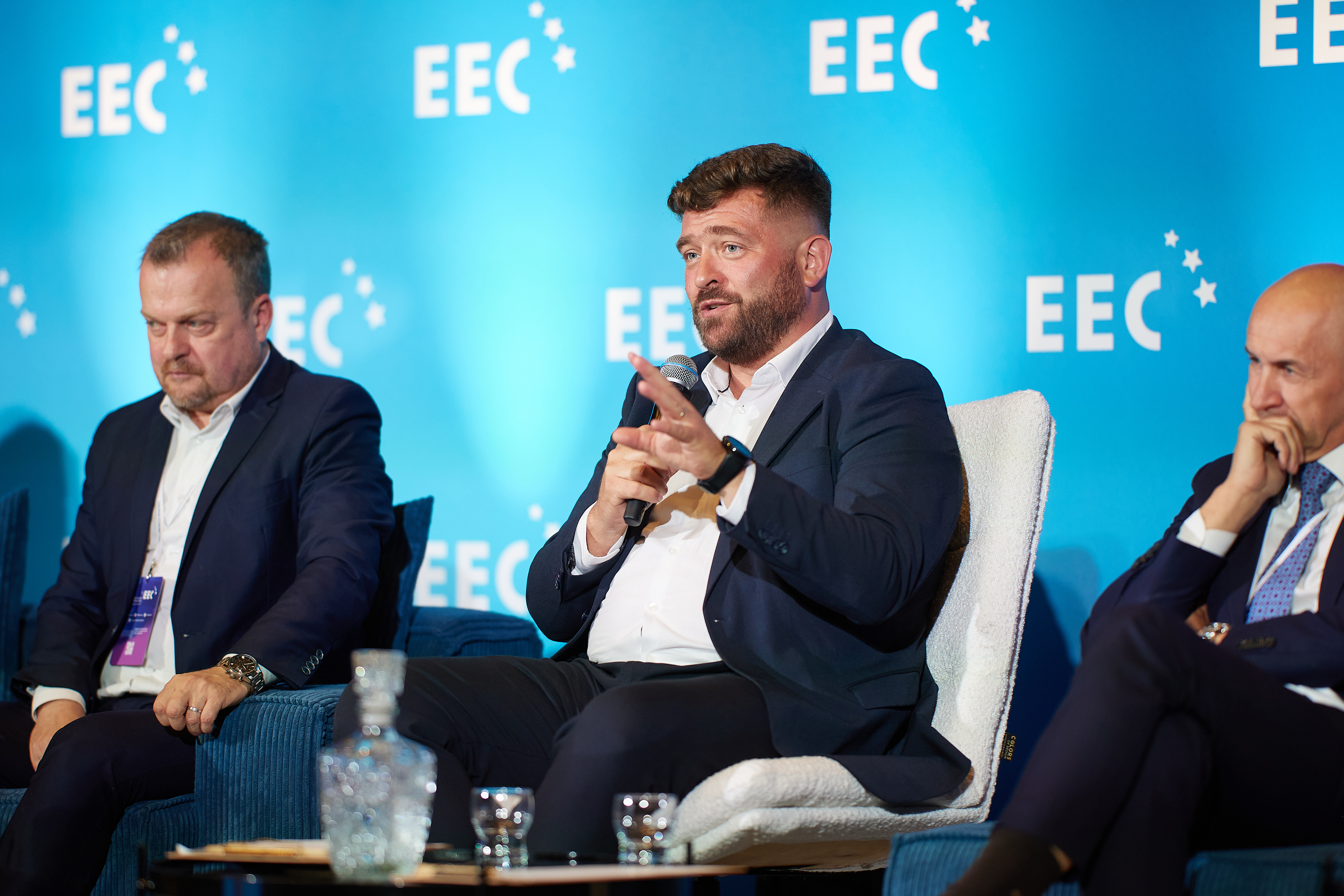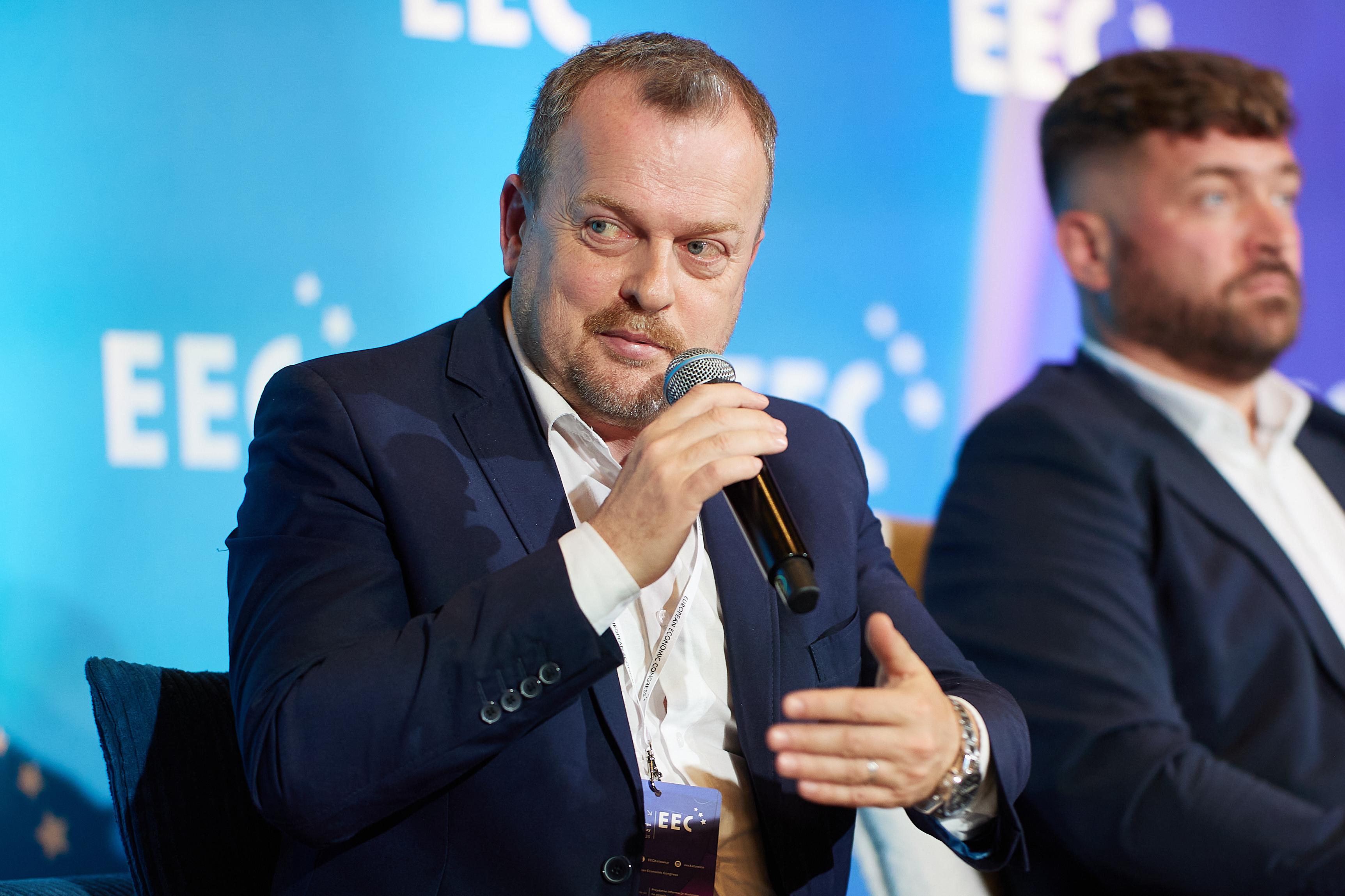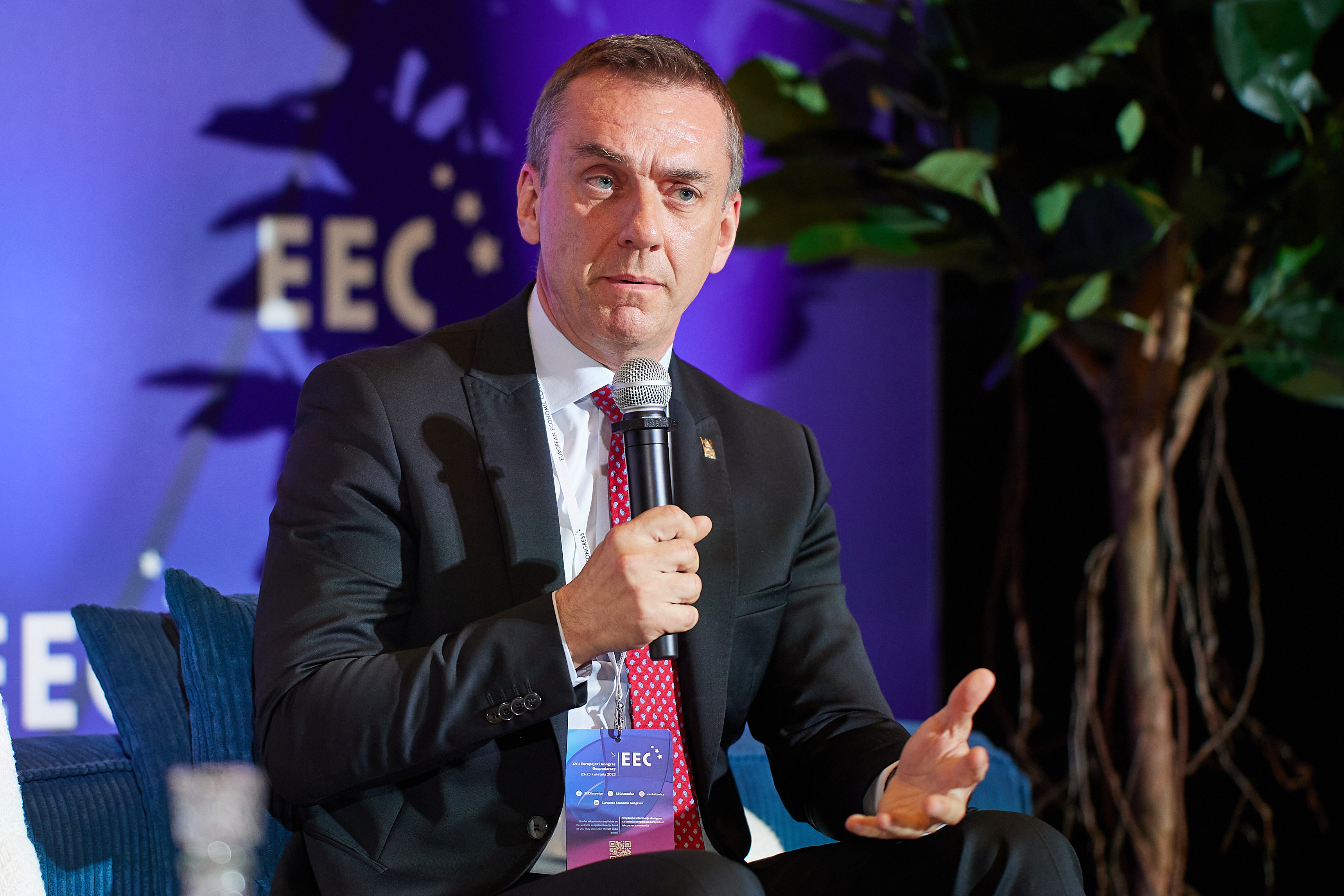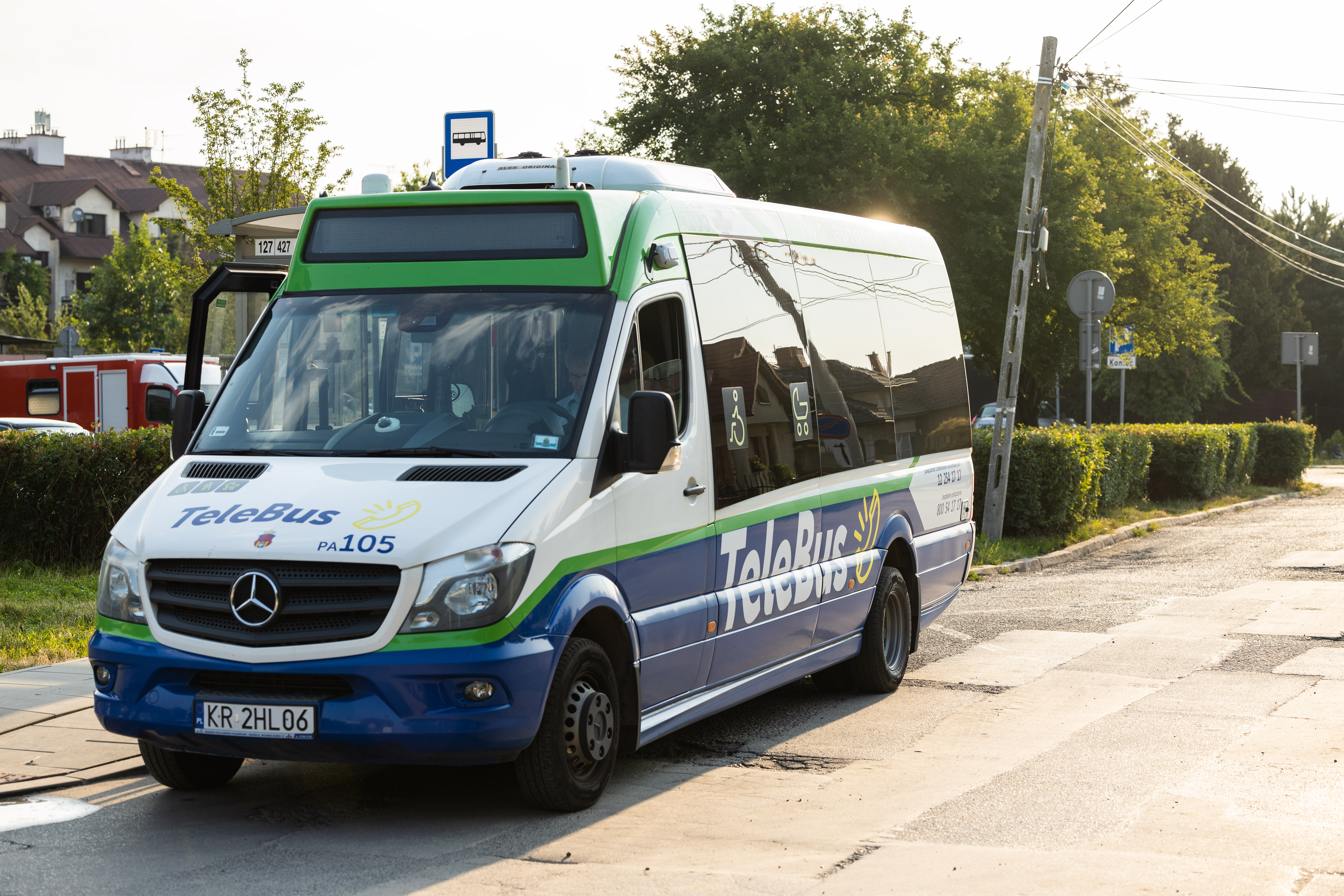Public transport for new times. There are expectations and solutions, but no regulations

- Small buses, ordered via the app, run in the Krakow Skotniki area and are used by an average of about 200 people every day. - The savings are significant - noted the director of the Public Transport Authority, Łukasz Franek.
- Not all city transport organizers believe that such transport is the right direction for the development of public transport. - If we are able to find money for it and provide formal justification, then we should definitely go in this direction - said the rector of the Krakow University of Technology, Andrzej Szarata.
- Deputy Minister of Infrastructure Stanisław Bukowiec assured that the ministry is open to all such comments coming from city governments.
We recently reported that in February this year, the LajkBus service was introduced on a pilot basis in Krakow in the Skotniki area, a shared micromobility system that allows you to order a ride using a special application and combine rides of different users at the same time.
As explained by the Public Transport Authority in Krakow , passengers can choose their pick-up location and destination from designated points. Thanks to the use of smaller vehicles, it is possible to travel on streets that are inaccessible to standard public transport buses, and if the passengers' destinations can be connected, algorithms optimize the vehicle's route to handle the requests as efficiently as possible.
Micromobility via app works well in chaotic and scattered single-family housing developments During the session entitled "Transport in cities" at the 17th European Economic Congress in Katowice , ZTP director Łukasz Franek spoke more broadly on this topic, emphasizing that it was a matter of moving towards greater flexibility - very important from the point of view of passengers.
- We have many areas in Krakow with such chaotic and scattered single-family housing development, which the infrastructure has not kept up with in any way. It is often impossible to drive even the smallest bus between these buildings, so it is known that if we have a kilometre more to public transport, it is not used as often as we would like - he noted. - This is a problem, because this is a totally inefficient area to service with public transport and much higher costs. So we wanted to test DRT - Demand Responsive Transport .
- We have many areas in Krakow with such chaotic and scattered single-family housing development, which the infrastructure has not kept up with in any way. It is often impossible to drive between the buildings even with the smallest bus - pointed out Łukasz Franek (Photo PTWP) He admitted that at some point "ZTP got in the way of the administration regarding licensing of this type of transport", which is why it was necessary to adopt its own interpretation of the regulations.
The bus should arrive within 9 minutes of ordering. There are 2 vans running around Skotniki. Previously, in this area, inhabited by about 5,000 people , there was no other public transport, and the nearest stop was a kilometer away.
The director sees great potential in the solution used.
- We assume that the vehicle should arrive to pick up the customer within 9 minutes and if it is possible to drive under the house, the vehicle should pick up the person from there. Why 9 minutes? Everyone can answer for themselves, when we order a taxi, Uber, Bolt and the waiting time is double-digit, we get grumpy, right? However, if it is 5, 7, maximum 9 minutes, we are still able to accept it - he noted, adding that so far, we have managed to keep this time in the case of over 90 percent of rides ordered via the app.
On average , about 200 people use it every day. Of course, LajkBus won't take you to every place in the city, but it will take you to a store, school or the nearest tram terminal.
It seems like not much, but on the other hand we have bus lines in Krakow that carry 70 passengers a day . The cost, if we look at the kilometer, is divided by half compared to even a small bus, so the savings are significant. We do not go if there is no trip booked at all
- noted Łukasz Franek .
Transport exclusion in cities also exists. The cure is “neighbourly transport” The application, which uses a special algorithm to plan the route, was created in cooperation with ZF. So far, as the director emphasized, passengers are 100% satisfied.
He pointed out that even in Krakow, which is the second largest city in Poland, about 10 percent of the area is not and will not be reached by standard public transport, which is why such courses based on the application in smaller vehicles are a very good solution.
- We call it neighbourhood transport. It is cheaper, more efficient, more comfortable, even safer. Parents more often decide to let their children go in it, because it is a bit like a taxi. They do not have to be afraid that someone will pick on their son or daughter somewhere on the bus, because the vehicle is small and the driver supervises everything - he said.
Arkadiusz Chęciński: We often drive right up to the house if it is close to the main network Earlier, Sosnowiec began testing similar types of transport, but at night. President Arkadiusz Chęciński emphasized that it worked, but unfortunately the regulations prevent the development of this option. And according to him, this is one of the key elements of making communication more flexible, so that it is more tailored to passengers.
- We get on at virtual stops that we have on the app, we get to our place and often it is organized in such a way that it actually goes to our house, if that house is close to the main network - he pointed out. - This is safe, economically justified transport, giving huge savings. Unfortunately, we are struggling with legal problems to expand it to other cities, and even to be able to extend the hours of operation.
- This is safe, economically justified transport, which provides huge savings. Unfortunately, we are struggling with legal problems to expand it to other cities, and even to be able to extend the operating hours - emphasized the president of Sosnowiec Arkadiusz Chęciński (Photo PTWP) He noted that Kraków is in a slightly better situation because it organizes transport itself; in the case of Sosnowiec and 40 other communes of the Silesian Voivodeship, however, it is the Upper Silesian-Zagłębie Metropolis that does it.
Sosnowiec had to figure it out. Transport for everyone at night, and for seniors during the day - Introducing on-demand transport outside the mainstream of transport is impossible. Our night bus was made somewhat as a prosthesis for transport. Unfortunately, you have to pay extra for it, because you cannot use monthly public transport tickets in these vehicles, which is a huge inconvenience for residents - he noted, adding that he counts on a quick signing of an agreement with GZM so that it will be possible to travel in this type of transport with a season ticket, which is included in the metropolis' offer. He also pointed to legal problems.
According to the president, the eastern districts of Sosnowiec, somewhat more distant from the center, are partially excluded from communication, and here communication on the app with smaller vehicles could help. For now, it works at night and via electric buses.
During the day, it simply functions as transport for seniors. Seniors can order to a health clinic, hospital, etc. It is also transport, also an application, also on request. However, we have also left the traditional form, so you can also connect by phone, because seniors often use this form of ordering.
- explained Arkadiusz Chęciński .
- It only works because it is outside the system. It is a municipal special purpose vehicle that runs this transport. We hope for legislative changes that will simplify the creation of this type of facilities - he added.
GZM Chairman Kazimierz Karolczak said that other cities would certainly be interested as well.
- And in this respect we are lobbying and will continue to lobby for legislative changes that will make this possible and easier - he said.
Lublin and Poznań do not intend to go in this direction. Rector surprised When asked a few weeks ago in various cities whether they had tried or intended to introduce on-demand bus transport using an application, transport managers in Lublin and Poznań replied that they had not and did not plan to, because in their opinion it contradicts the essence of functioning of public transport.
If someone says that passenger transport is not public transport, I don't know what to say to such a statement. I don't agree with it at all and let them say whatever they want
- commented Andrzej Szarata, Rector of the Kraków University of Technology , adding that the residents will appreciate it, and that is what it is all about.
- If someone says that passenger transport is not public transport, then I don't know what to say to such a statement. I don't agree with it at all and let them say whatever they want - commented the rector of the Krakow University of Technology Andrzej Szarata (Photo PTWP) He also noted that this is a response to the expectations, especially of the younger generation, who have already become accustomed to, for example, app-based taxis.
- Young people can count. Parking in the city centre is expensive, there are traffic jams in the city, so it is much easier for them to take the tram and they can still go out for a beer in the evening. This is very important to them. I am calm. I hope that if public transport is developed and if new services are developed, highly personalised, then young people will definitely not leave it - he emphasised.
The dial-a-bus worked well, but the regulations were not adjusted He recalled that 20 years ago, his university and the city implemented a project in which they tried to implement innovative activities, and one of them was the telebus, or a bus by phone . However, it turned out that creating such a system would require too much financial outlay, and besides, legal regulations in Poland prevented the operation of such a line.
- Because the line - as indicated by the regulations - must have stops, a fixed route, a timetable and the regulations stated this. What did we do? We introduced an innovative control system using real-time neurological networks, i.e. Mr. Czesław sat at the receiver and directed the driver of this bus. And the second solution was that the city found such an interpretation of the regulations that allowed such a line to run under a certain risk - said the rector.
The project ended and there was a desire to continue, because people got used to this solution. Currently, it operates in the area of Rybitwy and Płaszów.
Currently, the Telebus service is available in Kraków in the areas of Rybitwy and Płaszów (Photo: ztp.krakow.pl) - I'm talking about this because the problem was reported 20 years ago from the second largest city in Poland. It was signaled to change the regulations, to enable the operation of this line, because the project showed the effectiveness of this solution. And so far we have no solutions, but we have the example of Sosnowiec, which has to stand on its head and invent a special purpose vehicle to implement it. This is a bit of a disregard for the needs that have been emerging for years - noted Andrzej Szarata.
- If we are able to find the money for it and provide appropriate formal justification, then we should definitely go in this direction - he concluded.
Planning a trip with one click on your phone? That's Warsaw's goal Also, the director of the Public Transport Authority in Warsaw, Katarzyna Strzegowska, stressed that it is necessary to maintain high-quality public transport, which means, among other things, ensuring that residents can use it easily.
- In the form of, for example, what we are talking about, i.e. we take out our smartphone and with one click we find out what we can do, where to go. Today, the young generation expects exactly this - she pointed out. - Warsaw does not yet have a system that would allow you to do everything on your smartphone, but there is a goal that, with the support of new technologies, artificial intelligence, everyone who has our application will be able to plan a trip, intuitively use and buy any type of ticket.
Ministry open to proposals. It wants to launch door-to-door transport in municipalities Deputy Minister of Infrastructure Stanisław Bukowiec assured that the ministry is open to all such comments coming from city governments.
It is so that the organization of urban transport itself rests, of course, with the local government authorities of these cities, so as a ministry and as a government representative for counteracting exclusion, we focus on tasks that go beyond the agglomeration, beyond the cities, but there are also regulations and areas that we want to cooperate on and improve.
- assured Deputy Minister Stanisław Bukowiec.
He emphasized that as part of the new system for counteracting communication exclusion, the ministry wants to offer a door-to-door service .
- In communes where it will not be profitable to organize bus or minibus transport because too few people live there, the mayor will be able to organize such communication - emphasized the representative of the Ministry of Infrastructure.

portalsamorzadowy










